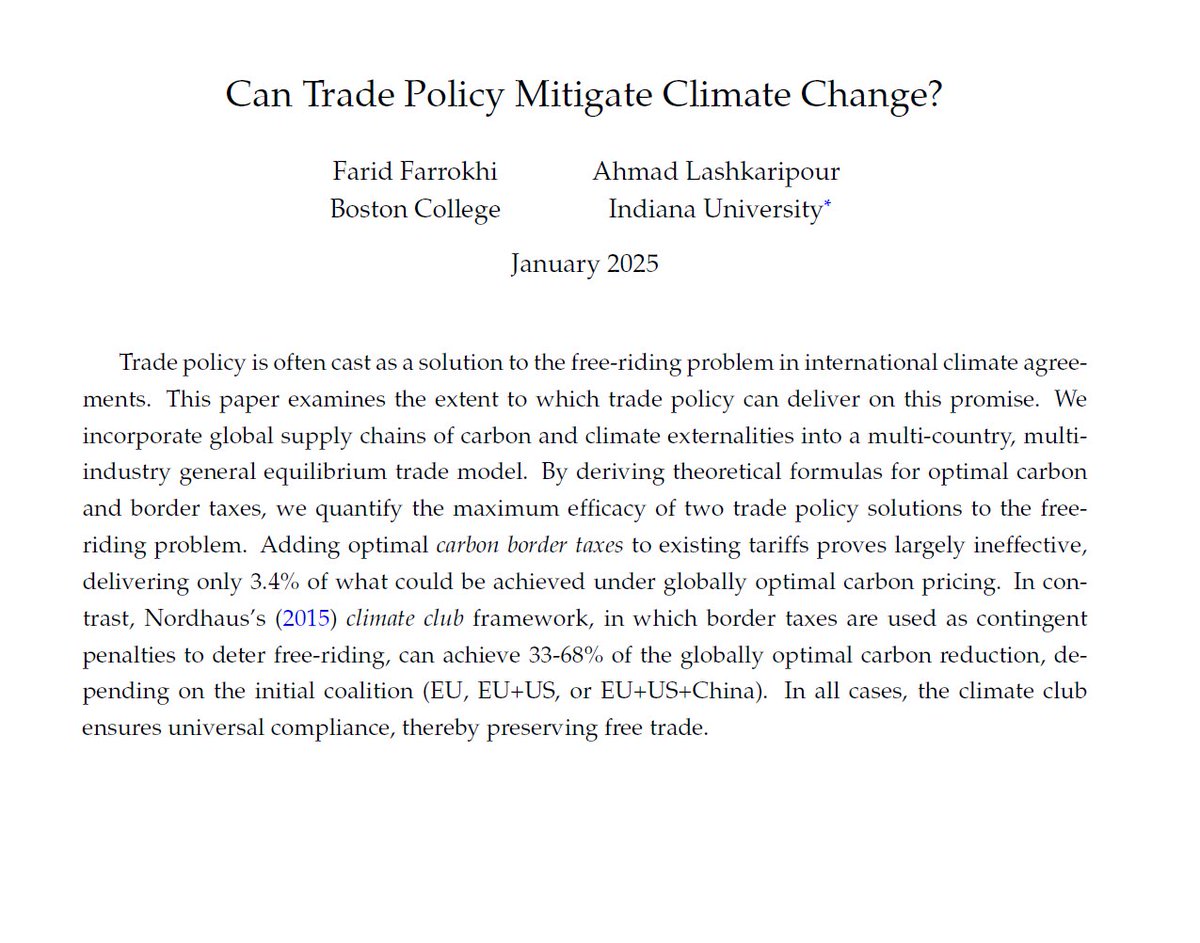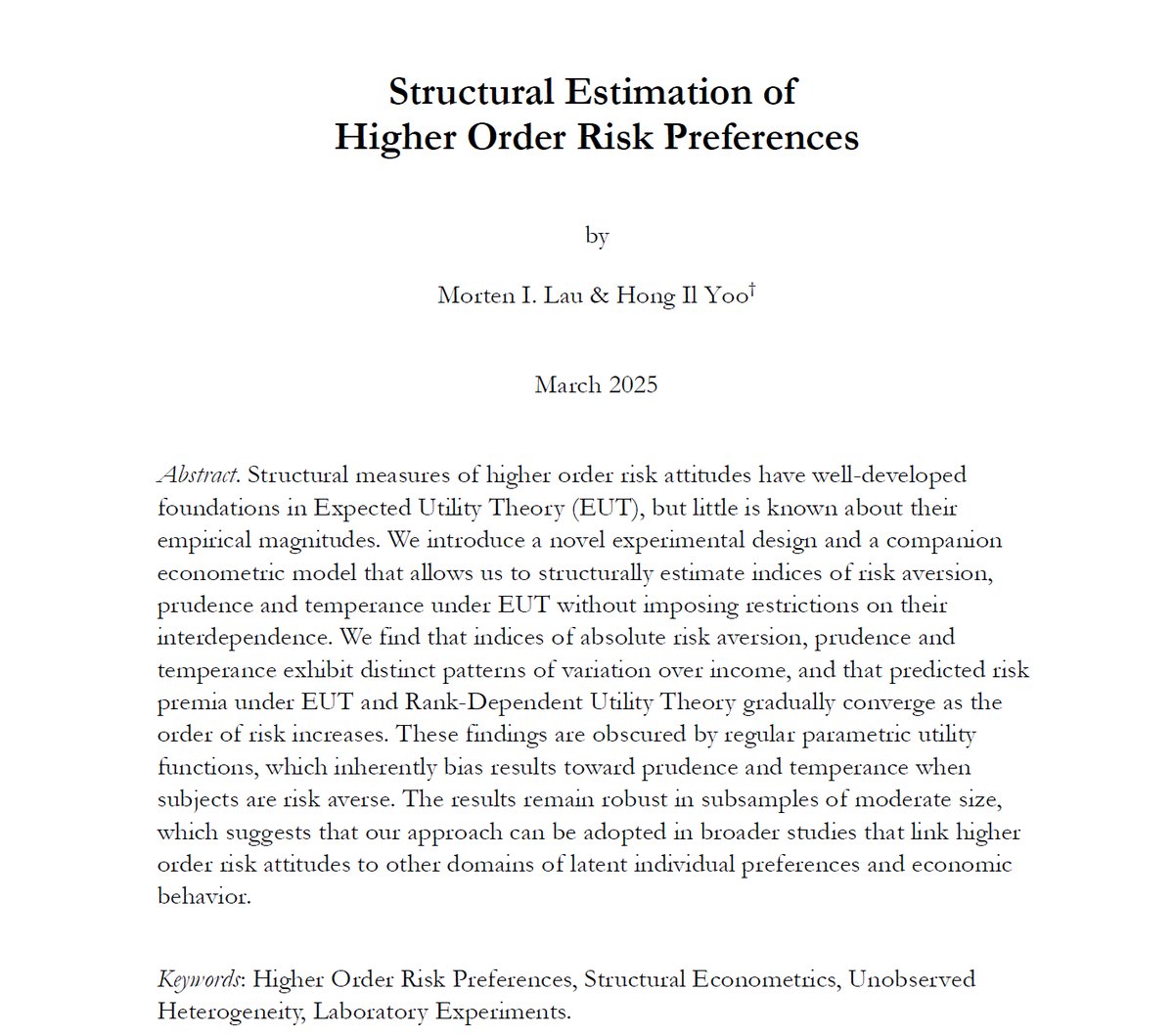
Econometrica
@ecmaeditors
News from the editors of econometrica
ID: 1279106879579439104
https://www.econometricsociety.org/publications/econometrica/browse 03-07-2020 17:37:26
377 Tweet
50,50K Followers
3 Following

Incorporating informative Bayesian priors into impact evaluation offers the ability to learn more from experiments. Leonardo Iacovone, early modern boy-actress (they/them) & David McKenzie demonstrate how to do this in the context of a Colombian exporting experiment. econometricsociety.org/publications/e…






















